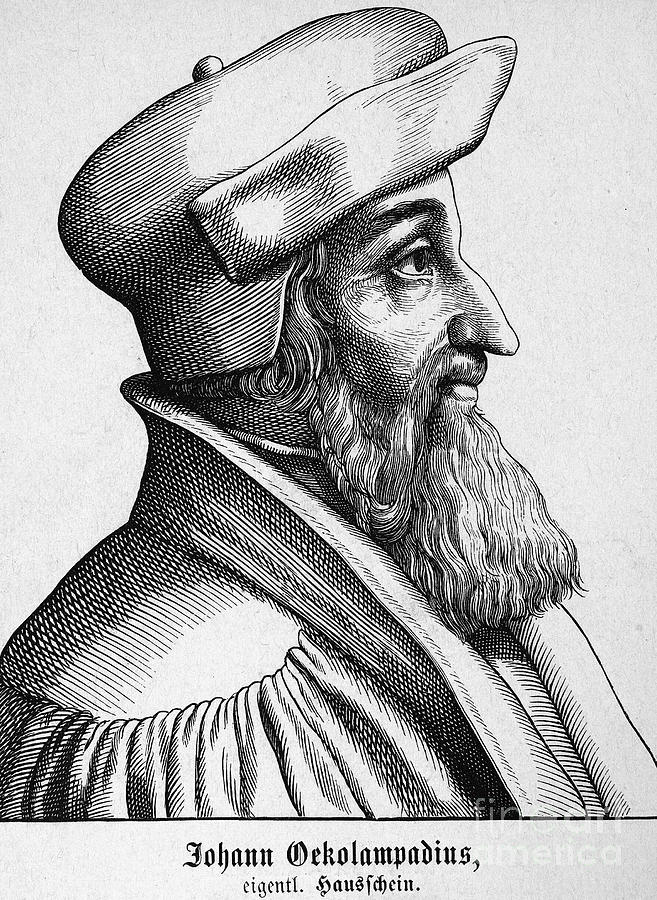On this day in 1531 a lamp was extinguished in Europe as Johannes Oecolampadius was translated from this world to the next. Born in Weinsberg, Germany in 1482, his surname meant “house lamp.” This brilliant boy was destined in God’s providence to be a bright light in the early years of the Reformation. A graduate of the University in Heidelberg, he eventually moved to Basel where he earned his doctorate. It was in Basel that he also assisted the great humanist scholar Erasmus in preparing his influential edition of the Greek New Testament for publication.
At age 36, Oecolampadius was appointed the cathedral preacher in the imperial city of Augsburg. He held this prestigious post for two years. As Luther’s arguments gained traction throughout Germany, Oecolampadius found himself increasingly in agreement with the teachings of the Reformation. Writing to a friend, he said, “Many of the things said by him [Luther] are so certain to me that, even if heavenly angels contradicted them, they would not change my convictions.”
Returning to Basel in 1522, Oecolampadius was called to preach at St. Martin’s Church. His written works were also being published and circulated throughout Europe. In addition, he began lecturing at the University of Basel. His presentations drew large crowds of listeners hungry for the truth. When the City Council appointed him as a teacher of theology and professor of Biblical exegesis at the university, he had arrived as the leader of the Reformation in Basel.
In the years that followed, Oecolampadius advanced the Reformation in Switzerland, working in conjunction with Zwingli and Bucer. He represented the Reformed position in the crucial disputation at Bern in 1528, which swayed the powerful canton of Bern to the Reformed side. In addition, he carried on friendly correspondence with Philip Melanchthon, Luther’s able assistant. He was also a participant in the Colloquy of Marburg in 1529, where Lutheran and Reformed theologians met to discuss their differences.
Oecolampadius’ theological contributions included a strong commitment to Biblical exegesis, though most of his commentaries remain untranslated from the Latin. He was one of the first to articulate a Reformed view of covenant theology.
When his friend and colleague Ulrich Zwingli was killed in battle in 1531, Oecolampadius was overcome with shock and died shortly thereafter.

© 2025 The Orthodox Presbyterian Church